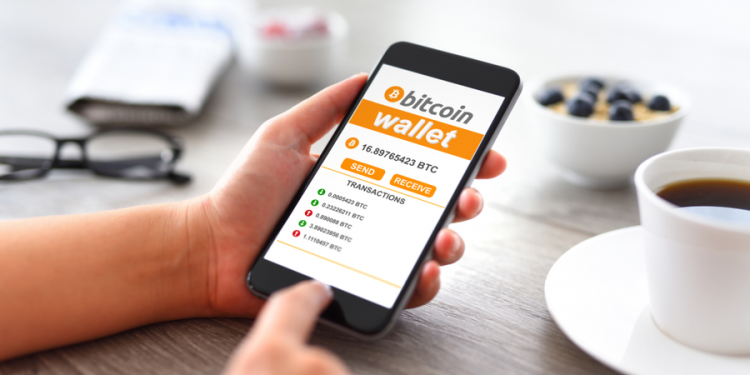Backing up your crypto wallet is a crucial step in protecting your funds from loss or theft. Without a backup, you risk losing access to your funds if your device is lost, stolen, or damaged. In this blog post, we will explore how to back up your crypto wallet and why it is important.
Why Backing Up Your Crypto Wallet is Important?

Backing up your crypto wallet is important for several reasons. First and foremost, it ensures that you will not lose access to your funds in the event that your device is lost, stolen, or damaged. This is particularly important for those who hold large amounts of cryptocurrency, as the loss of funds could be devastating.
Additionally, backing up your crypto wallet can help to protect against hacking and other types of cyber attacks. By storing a backup of your wallet offline, you can ensure that your private keys are not exposed to potential hackers.
How to Back Up Your Crypto Wallet?
The process for backing up your crypto wallet will vary depending on the wallet you are using. In general, however, the following steps can be used as a guide:
- Locate the backup feature in your wallet’s settings or options menu.
- Follow the prompts to create a backup file, which will typically be saved as a .dat or .wallet file.
- Store the backup file in a secure location, such as a USB drive or external hard drive.
- Test your backup by restoring your wallet using the backup file.
It is important to note that the process for backing up your wallet may differ depending on the wallet you are using. Always consult the documentation or support resources provided by your wallet provider for specific instructions.
Best Practices for Storing Your Backup
Once you have created a backup of your crypto wallet, it is important to store it in a secure location. Consider the following best practices:
- Store your backup in a secure, offline location, such as a safe or safety deposit box.
- Make multiple backups and store them in different locations, to protect against loss or damage.
- Use strong encryption to protect your backup file from potential hackers.
- Consider using a multi-sig wallet, which requires multiple signatures to access your funds and provides an added layer of security.
Types of Crypto Wallets
There are several types of crypto wallets available on the market today, including software wallets, hardware wallets, and paper wallets. Each type of wallet offers different features and functionality, and it is important to choose a wallet that meets your specific needs.
Choosing the Right Crypto Wallet
When choosing a crypto wallet, there are several factors to consider, including security, ease of use, and compatibility with your preferred cryptocurrency. It is important to research different wallet providers and read reviews before making a decision.
Multi-Signature Wallets
Multi-signature wallets require multiple signatures, or approvals, to authorize transactions. This added layer of security can help to protect against cyber attacks and other types of fraud.
Hardware Wallets vs. Software Wallets
Hardware wallets are physical devices that store your private keys offline, while software wallets are digital applications that store your private keys on your device. Both types of wallets offer their own advantages and disadvantages, and it is important to choose a wallet that meets your specific needs.
Paper Wallets
Paper wallets are a type of cold storage wallet that involve printing out your private keys and storing them in a secure location, such as a safe or safety deposit box. While paper wallets offer an extra layer of security, they can also be more difficult to use than other types of wallets.
The Importance of Keeping Your Wallet Secure
Regardless of which type of wallet you choose, it is important to take steps to keep your wallet secure. This includes using strong passwords, enabling two-factor authentication, and keeping your private keys offline and in a secure location.
Overall, crypto wallets are a crucial tool for anyone who wants to participate in the world of cryptocurrency. From software wallets to hardware wallets and paper wallets, there are many options available to suit different needs and preferences. By taking the time to research different wallet providers and following best practices for wallet security, you can ensure that your cryptocurrency holdings are protected.
Crypto Wallets and Taxation
Crypto wallets can have implications for taxation, as cryptocurrency holdings are often subject to capital gains taxes. It is important to keep accurate records of your cryptocurrency transactions and consult with a tax professional to ensure that you are complying with relevant tax laws.
Crypto Wallets and Regulation
As the use of cryptocurrency continues to grow, governments around the world are exploring ways to regulate the industry. This can have implications for crypto wallets, as certain types of wallets may be subject to regulatory requirements or restrictions.
Crypto Wallets and User Experience
User experience is an important consideration when choosing a crypto wallet. Wallets that are easy to use and navigate can make it easier for users to manage their cryptocurrency holdings and participate in the wider crypto ecosystem.
Crypto Wallets and Interoperability
Interoperability refers to the ability of different systems and technologies to work together. In the context of crypto wallets, interoperability can enable users to seamlessly transfer their cryptocurrency holdings between different wallets and platforms.
Crypto Wallets and Fees
Crypto wallets may charge fees for certain services, such as transactions or storage. It is important to research different wallet providers and compare fees before making a decision.
Crypto Wallets and Privacy
Privacy is a growing concern in the world of cryptocurrency, with many users seeking ways to protect their financial privacy. Some wallets offer enhanced privacy features, such as the ability to use Tor or VPNs to mask your IP address.
Overall, crypto wallets offer a wide range of functionality and features, and can be an important tool for anyone who wants to participate in the world of cryptocurrency. By considering factors such as regulation, user experience, and fees, and taking steps to protect your wallet security and financial privacy, you can ensure that your cryptocurrency holdings are safe and secure.
Crypto Wallets and NFTs
Non-fungible tokens, or NFTs, are digital assets that use blockchain technology to verify ownership and authenticity. Crypto wallets can be used to store and manage NFTs, allowing users to buy, sell, and trade these unique assets.
Crypto Wallets and DeFi
Decentralized finance, or DeFi, is an emerging field that uses blockchain technology to create financial products and services without the need for traditional financial intermediaries. Crypto wallets can be used to access DeFi platforms, allowing users to participate in a wide range of financial activities, from lending and borrowing to trading and investing.
Crypto Wallets and Gaming
Blockchain technology is being increasingly used in the gaming industry, with many games now using cryptocurrency as in-game currency. Crypto wallets can be used to store and manage these digital assets, allowing gamers to easily buy, sell, and trade in-game items.
Crypto Wallets and Identity
Blockchain technology can also be used to create decentralized identity systems, which enable users to prove their identity without the need for a centralized authority. Crypto wallets can be used to store and manage identity data, allowing users to control their personal information and protect their privacy.
Crypto Wallets and Social Impact
Crypto wallets can be used for social impact initiatives, such as donating to charities or supporting environmental causes. By using a crypto wallet to donate to a cause, users can ensure that their funds go directly to the intended recipients, without any intermediaries taking a cut.
Crypto Wallets and Cross-Border Payments
Crypto wallets can be used for cross-border payments, allowing users to send and receive funds across different countries and currencies. This can help to reduce transaction fees and increase the speed of transactions.
Overall, crypto wallets offer a wide range of functionality and applications, from NFTs and DeFi to gaming and cross-border payments. By exploring these different use cases and taking steps to protect your wallet security, you can take full advantage of the benefits that crypto wallets have to offer.
Conclusion
Backing up your crypto wallet is a crucial step in protecting your funds from loss or theft. By following the steps outlined in this blog post, you can create a secure backup of your wallet and ensure that you always have access to your funds. Remember to always store your backup in a secure location and to test it regularly to ensure that it is functioning properly. With these precautions in place, you can rest assured that your cryptocurrency holdings are protected.
I have 10 years of experience in the field of cryptocurrency and have written for many different publications. I am currently the Head of Research at a major cryptocurrency exchange. In my free time, I enjoy writing books on this subject.









